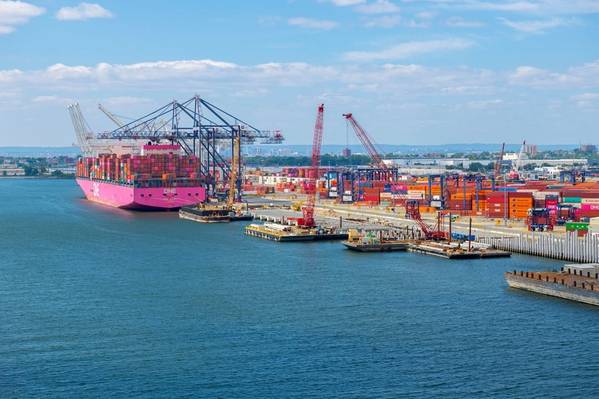
A potential strike at U.S. seaports on the East Coast and Gulf of Mexico could back up cargo there for weeks or even months, shipping experts said on Wednesday.
Retailers like Walmart and other importers have been rushing goods in ahead of the Sept. 30 expiration of the union contract covering some 45,000 dockworkers at three dozen seaports from Texas to Maine.
Their goal? To land cargo in the U.S. before Oct. 1, when the International Longshoremen's Association representing those workers has vowed to strike if a new contract is not in place.
Analysts at Sea-Intelligence, a Copenhagen-based shipping advisory firm, estimated that it could take anywhere from four to six days to clear the backlog from a one-day strike.
"This means that a (one)-week strike in the beginning of October would not be cleared until mid-November," Sea-Intelligence CEO Alan Murphy said in a statement.
A two-week strike could mean that ports would not return to normal operations until 2025, Murphy said.
Those findings echo an advisory from A.P. Moller-Maersk, one of the largest providers of ocean transportation. Maersk said a one-week shutdown could require up to six weeks of recovery time, "with significant backlogs and delays compounding with each passing day."
The early shipping strategy has come with a hefty cost to shippers. The off-contract spot market price to send a 40-foot container to the U.S. East Coast from the Far East topped $10,000 in early July, up from around $2,100 in early April, said Peter Sand, chief analyst at pricing platform Xeneta.
"The risk of port strikes was something that had to be dealt with - by taking early action," Sand said.
That window is closing as the deadline for a new deal nears. That's because shipping diversions due to attacks by Yemen's Houthis in the Red Sea means it can take 45 days or longer to transport goods to East and Gulf Coast ports from factories in Asia.
"Shipping cargoes next week ... is really too late - as it may just be sitting on the water" if the ports are hit by widespread strikes, Sand said.
(Reuters - Reporting by Lisa Baertlein; Editing by Paul Simao)



